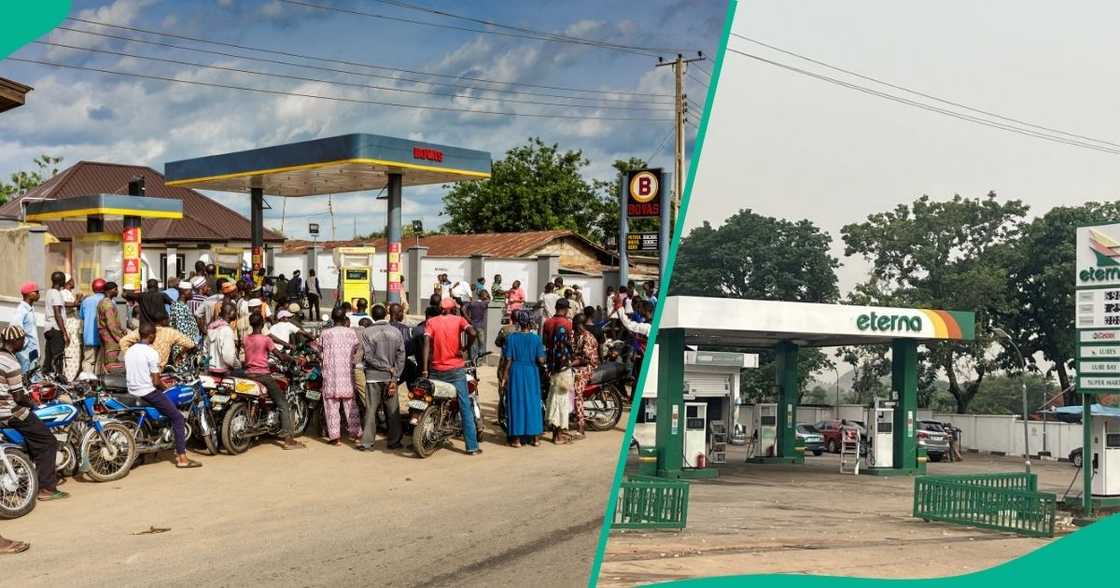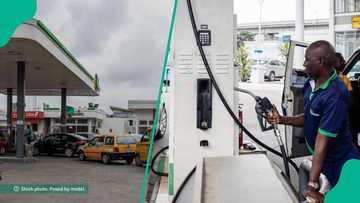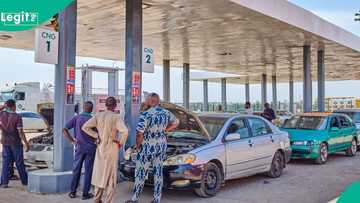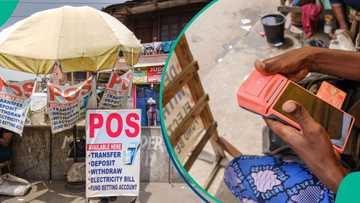FG Removes Subsidy on CNG: Prices Jump to N420 as Nigerians Face Long Queues
- The cost of compressed natural gas (CNG) has soared recently, resulting in queues at filling stations
- This is because the Nigerian government has withdrawn subsidies from the product, which has led to a price hike
- As of Wednesday, September 3, 2025, motorists said that the commodity’s price had skyrocketed by over 100%
Legit.ng’s Pascal Oparada has reported on tech, energy, stocks, investment and the economy for over a decade.
The federal government has removed the subsidy on Compressed Natural Gas (CNG), sparking a surge in prices across the country.
Retailers confirmed that the cost of one standard cubic metre (SCM) of CNG has climbed from around N220–N230 to as high as N420–N450, depending on the vehicle type and station.

Source: Getty Images
Why the price hike happened
Truck operators are now paying N450 per SCM, while commercial and private car drivers continue to enjoy partial subsidies at N380 per SCM.
However, stakeholders warn that this differential may not last as the government pushes for full deregulation.
Sources within the Presidential Compressed Natural Gas Initiative (PCNGI) explained that the subsidy cut is a deliberate policy move. The goal is to attract investors and reduce government spending while still cushioning transport costs for commuters.
“The price is subsidised for commercial vehicles. Trucks transporting goods pay higher, while buses carrying passengers pay less,” a PCNGI official said.
Industry insiders revealed that the NNPC Gas Marketing Limited (NGML) reviewed the price structure, ending the cap that kept CNG artificially low since 2023. A major retailer confirmed:
“Truck drivers are to pay N450/SCM, while commercial drivers will pay N380. We expect the price to hit N500 or even N600 soon.”
Queues and frustration for vehicle owners
While the government insists that CNG is still cheaper than petrol, long queues at the few operational refilling stations are discouraging users. Some stations see lines stretching up to 1.5km, forcing drivers to spend hours waiting for gas.
Adeyemi Paul, a ride-hailing driver, lamented:
“I spent over N1.5 million to convert my car. Now, with these queues and rising prices, many of us may return to petrol.”
The scarcity of stations remains a critical challenge. Converted vehicles often revert to petrol when CNG is unavailable, undermining the government’s push for alternative fuels.
Government defends the initiative
Despite the setback, the federal government insists its CNG programme is making significant progress. In June 2025, it reported that over 100,000 vehicles had been converted to run on CNG, a dramatic rise from fewer than 4,000 a year earlier.
Programme director, Michael Oluwagbemi, highlighted:
- Growth from 7 conversion centres in 2023 to 265 centres nationwide.
- Expansion from 20 operational refuelling stations to 60, with 175 more under construction.
- Creation of over 10,000 direct jobs in the CNG value chain.
“Rome wasn’t built in a day,” Oluwagbemi said, defending the pace of rollout. “Those who led Nigeria into the fuel subsidy crisis cannot fairly criticise the speed at which we’re addressing it.”
Between subsidy savings and public burden
When President Bola Tinubu announced the removal of petrol subsidy in 2023, fuel prices skyrocketed from N175 to about N870 per litre. CNG was then promoted as the affordable alternative to cushion households and transport operators.
But with the subsidy removal, many Nigerians are questioning whether CNG still delivers real savings. At N420–N450 per SCM, the cost difference with petrol is narrowing, threatening the attractiveness of the programme.
Stakeholders fear that without stable pricing and better availability, Nigerians who invested heavily in conversions may abandon CNG, undermining government policy.

Source: Getty Images
What lies ahead for CNG
Experts believe the latest subsidy removal is part of Nigeria’s broader energy reforms aimed at deregulating the downstream sector.
While it may encourage private investment in infrastructure, the immediate burden falls on drivers, commuters, and small businesses.
For now, Nigerians are left balancing the promise of cleaner, cheaper energy against the reality of higher costs and long queues.
Whether CNG becomes the true alternative fuel envisioned by the government depends on how quickly it can resolve supply bottlenecks and manage public trust.
List of places to convert cars to CNG
Legit.ng earlier reported the list of places for Nigerians who would want to convert their cars to use compressed natural gas instead of premium motor spirit.
The trend of CNG conversion is growing because it is far cheaper than PMS, which has become expensive in Nigeria.
Proofreading by Kola Muhammed, copy editor at Legit.ng.
Source: Legit.ng






